Published May 2017
Introduction
The ING-Economics Network Survey of The Public’s Understanding of Economics is based on an online poll of more than 1,700 respondents from across the country. They were asked a series of questions about their understanding of economics, how they access economic news and how to improve communication of economic analysis and evidence to the general public.
The survey, commissioned by the Economics Network and ING was conducted by YouGov.
“Economics has the potential to transform lives and the operation of democracy. But over the past few years it has become increasingly apparent that more work needs to be done to improve the dialogue between economists and the public. This survey, and the associated symposium, are among the ways in which the Economics Network is taking this important work forward.”
Alvin Birdi, Director of the Economics Network
The sample
All figures, unless otherwise stated, are from YouGov Plc. Total sample size was 1,715 adults. Fieldwork was undertaken between 21st - 23rd April 2017. The survey was carried out online. The figures have been weighted and are representative of all GB adults (aged 18+).
Data on the respondents included: age, gender, region, social grade and voting history (including 2015 general election and 2016 EU referendum).
Top line results
New online poll finds that people are sceptical of economics but would like to learn more. People instinctively understand that economics is relevant to their everyday lives – but the majority have never studied it; few understand what economists do; and about half read stories about economics less often than once a week.
Understanding of economics
Many respondents would like to improve their knowledge of economics. Significantly, this desire is stronger in relation to their personal finances (56%) rather than to help them make informed decisions when voting (48%) or to understand the world (44%).

A small majority (55%) of respondents say that they understand the economic consequences of a fall in the pound’s exchange rate or of government spending cuts. Conversely, on Brexit, only 42% of respondents report that they understand the main economic consequences, outweighed by the 45% reporting that they do not understand them.
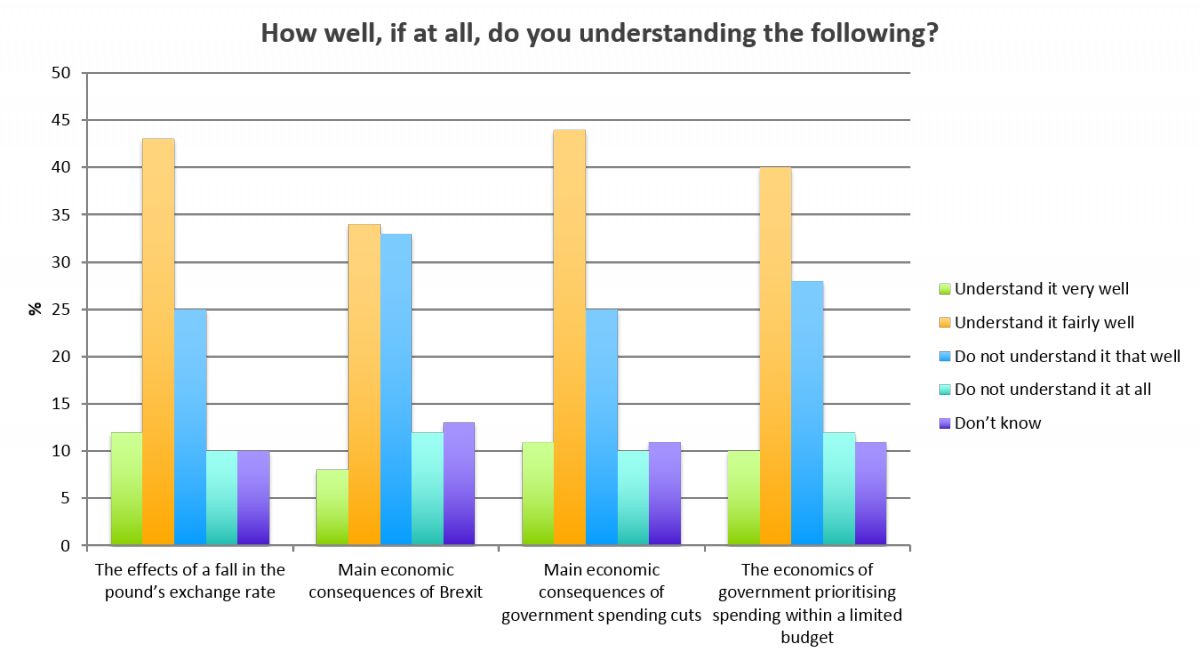

Economics education
While nearly two thirds of respondents (64%) have not studied any economics, three quarters think that economics should form part of the school curriculum, either as a specific course (21%) or embedded in general education (55%).

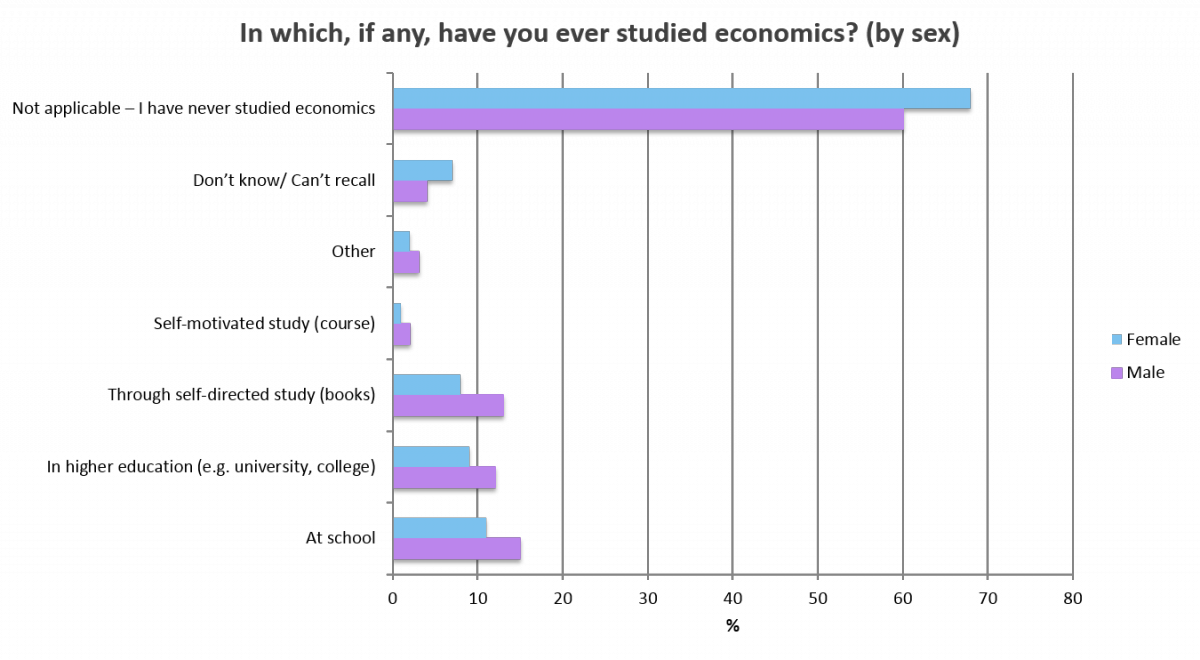


Accessing economics news
While 36% of respondents never or rarely pay attention to economics stories in the media, more than four out five (83%) think that economics is relevant to their everyday lives. Nearly two thirds (64%) think that the government should listen to the advice of economists regarding the national and global economy.







Trust of economists
There is a big problem of trust in the opinions of economists, particularly among people who have not studied economics (55%), among older age groups (54% of 65+ age group) and residents of the North of England (44%) and among Leave voters in the EU referendum (54%). Half of the respondents (50% excluding don’t knows) think that economists express views based on personal and political opinion than on verifiable data and analysis.








What economists do
When asked what economists do, nearly two thirds of respondents choose forecasting. Only 26% see economists advising government on policies and 33% on industry regulation.

Gender
Although just over half of the respondents (both male and female) see economics as equally associated with men and women, 32% see it as male-orientated, compared with only 1% who see it as female-oriented. Men are also more inclined to say they understand economics (50-65% depending on the topic compared with 28-38% of women).
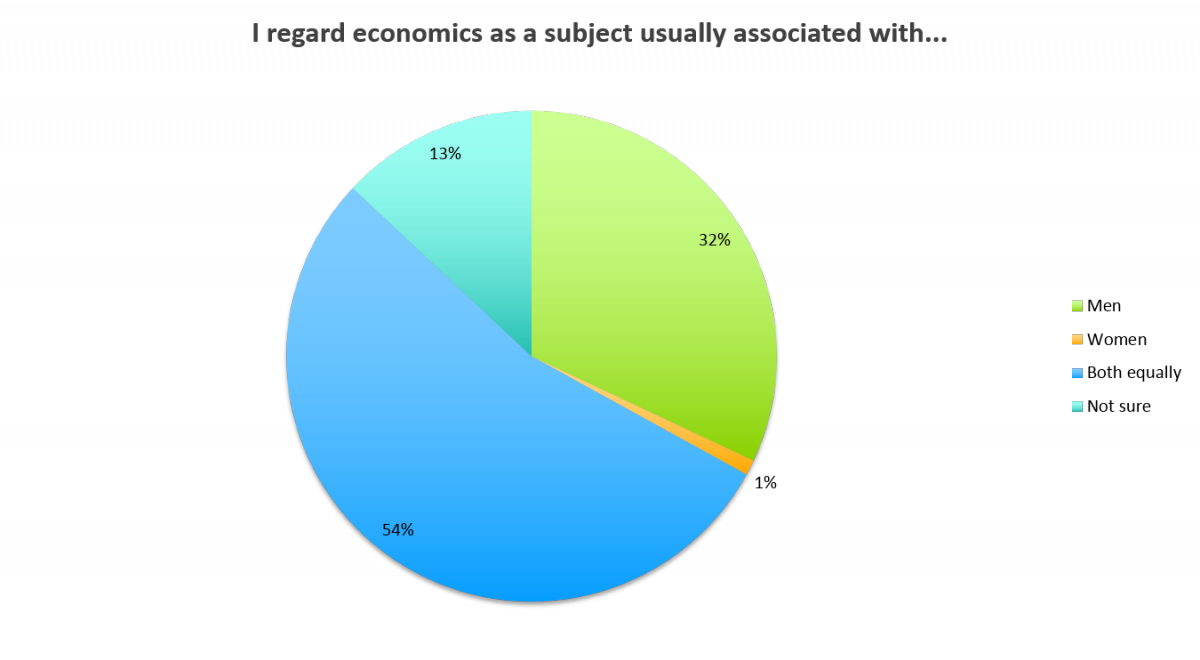
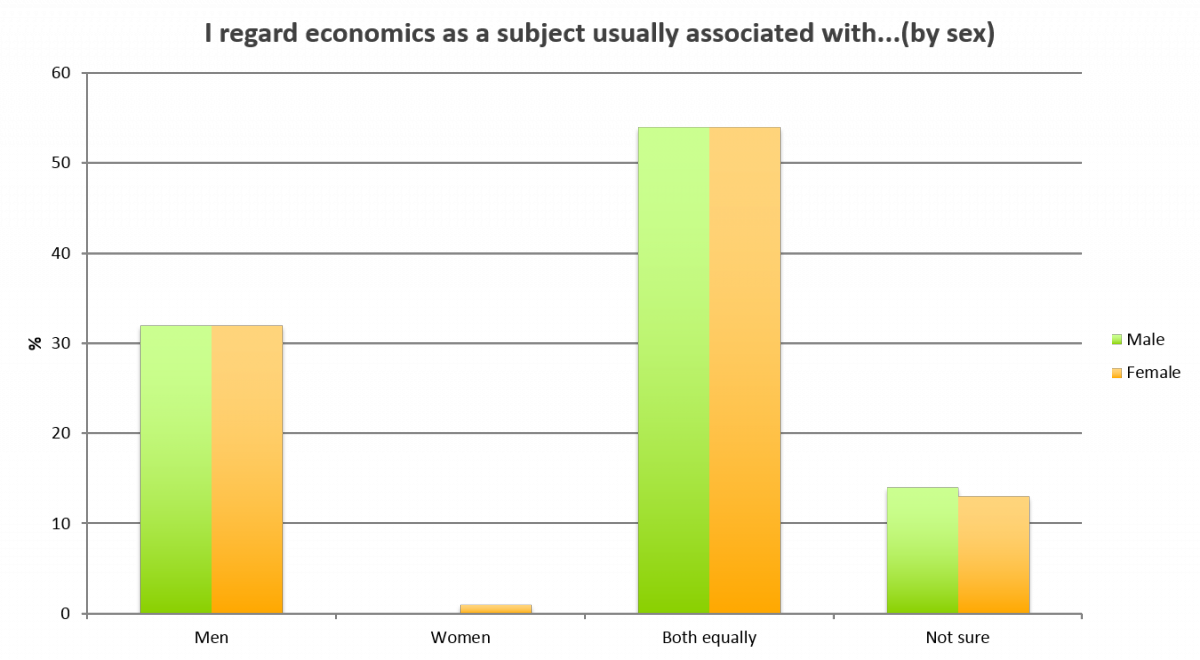
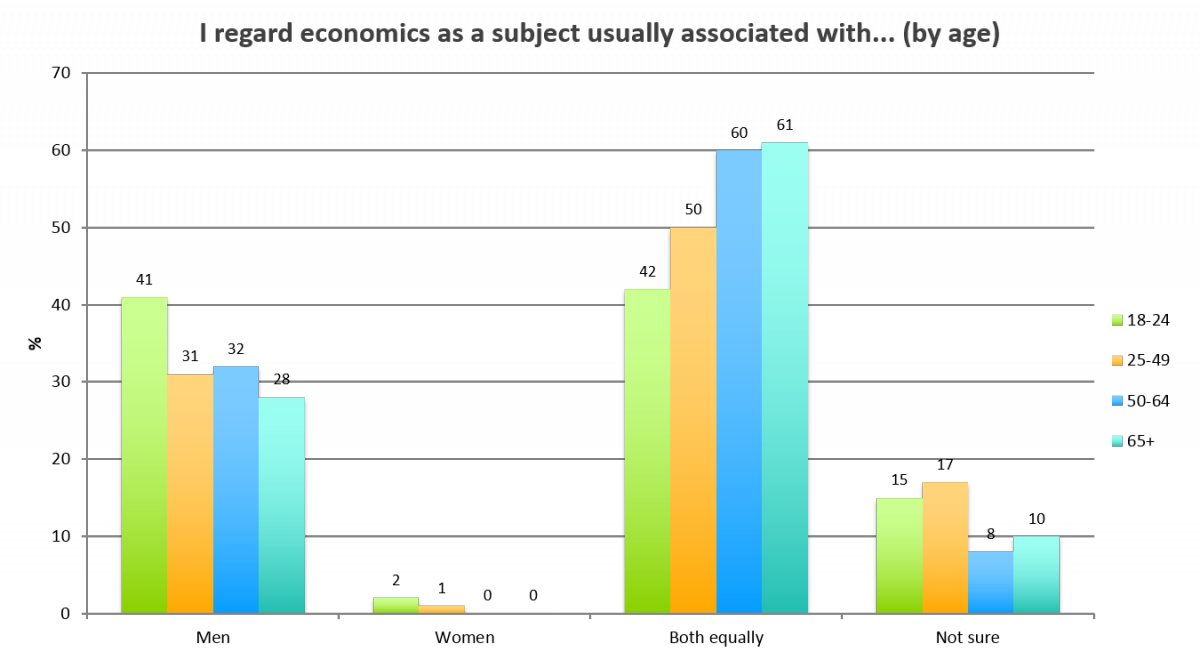
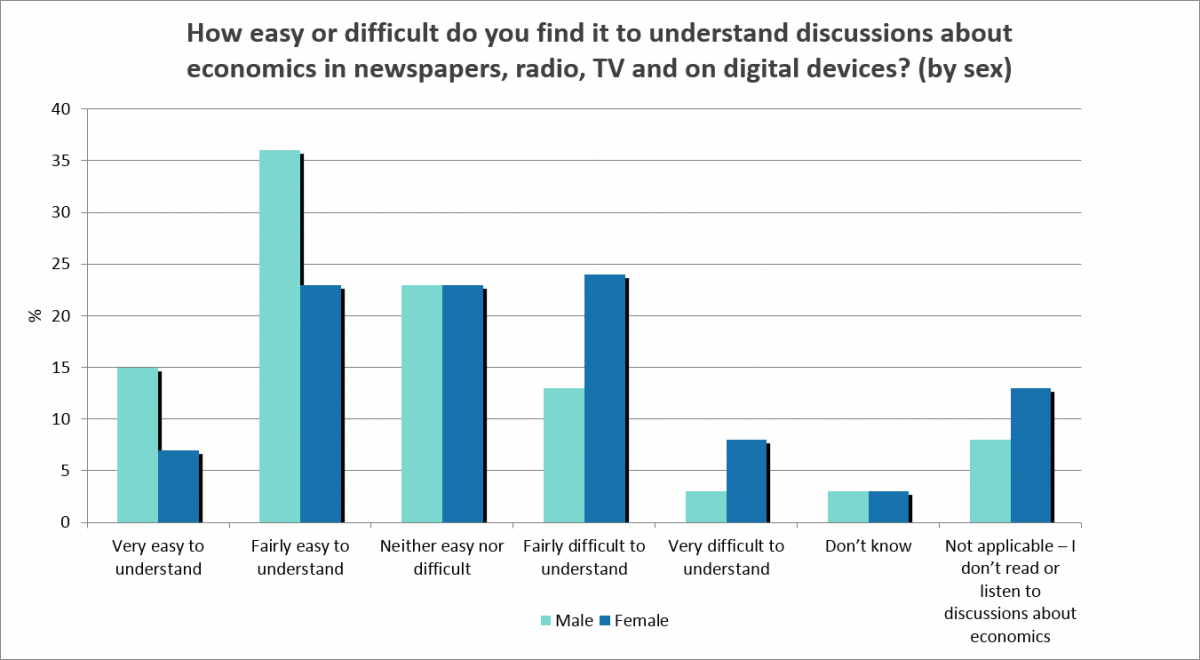
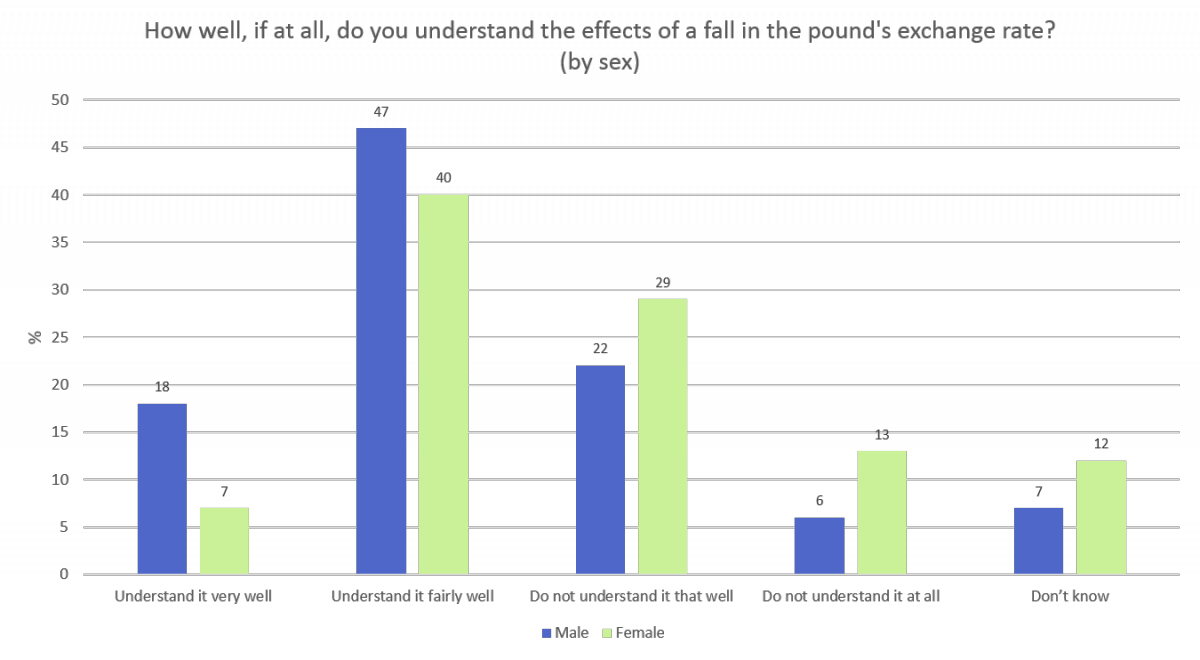
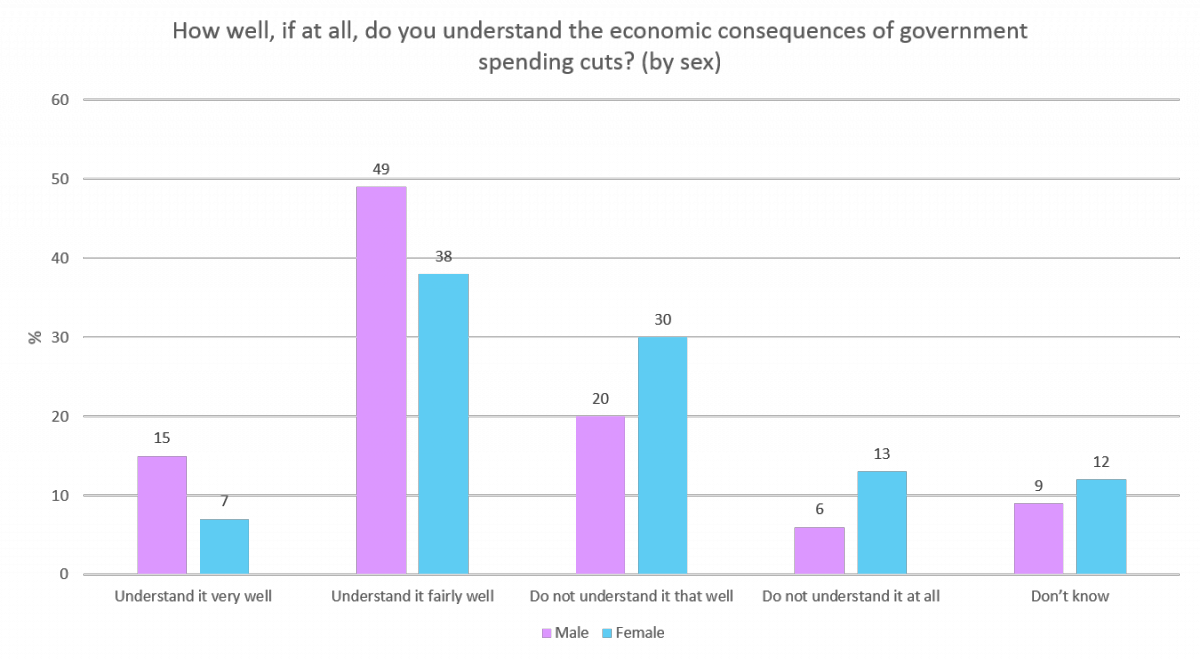
Accessing economics news
When asked where they would look to find more information on a news story related to economics, three to four times as many respondents report accessing this information on websites (including general websites such as the BBC, specialist websites such as the Financial Times with 26% each and sites found via Google searches, 20%) compared with social media (6%).
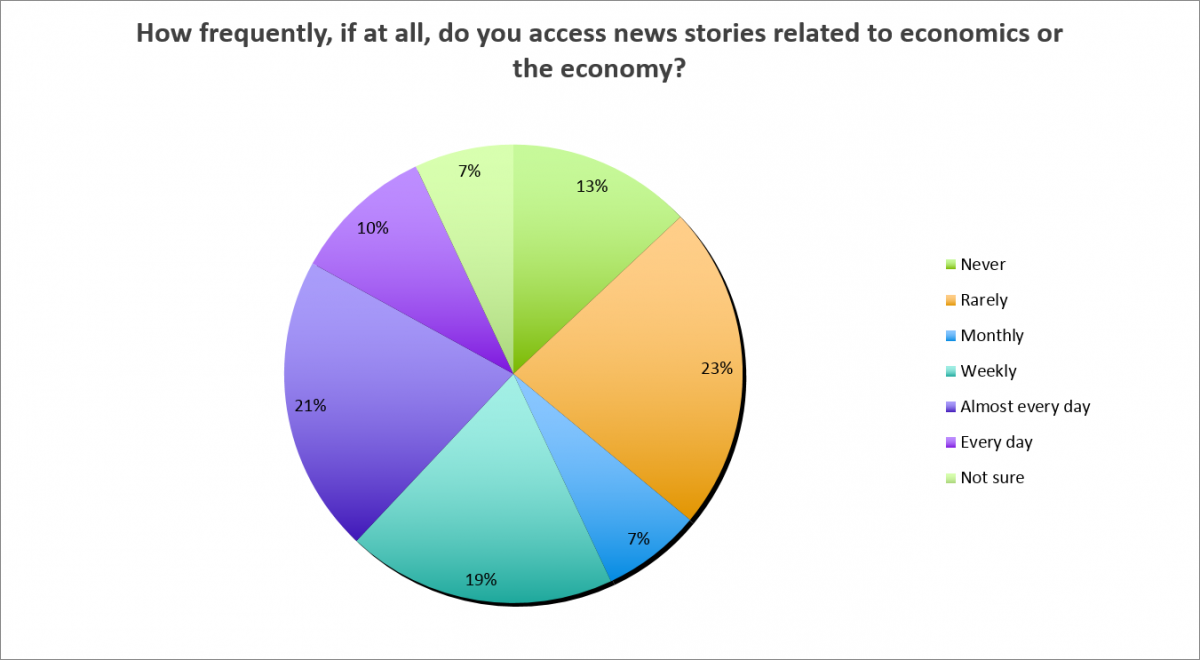
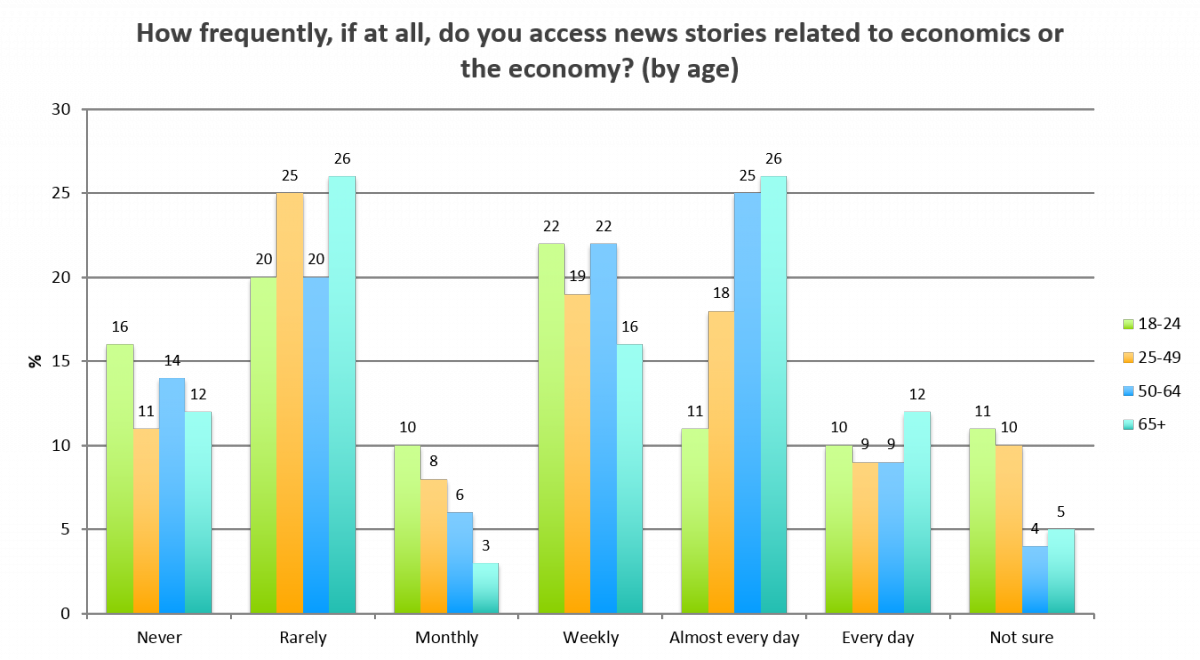

When asked how they would like to access further information on economics, the most popular option is short videos or podcasts (43%) that explain economic concepts in non-technical language, followed by television documentaries (41%) on economic issues, and then economic news delivered on digital devices (30%).

Role of public figures
Nearly three quarter of respondents feel that public figures (such as Brian Cox in physics and Sir David Attenborough in natural history) are important for communicating their subjects.

When asked to name economists of this kind in the public eye, only around 16% were able to provide any names according to our own analysis of responses.
Of all respondents, less than 1% mentioned a researcher as an economist in the public eye and around 6% mentioned an economic journalist. Much more frequent picks were the policy-makers at HM Treasury, the Bank of England and the IMF, as well as personal finance adviser Martin Lewis.
Impact of survey
"ING is proud to support this survey. Understanding how people perceive economics is vital if we are to help them make better decisions. And it seems that much of the scepticism about economics stems from the public’s tendency to associate it with forecasting. Yet people want to know more about economics in order to help them in their everyday lives. Economists need to make what they actually do clearer and more relevant. Since people get their information on economics primarily through digital channels, that’s where economists should focus their efforts."
Mark Cliffe, Chief Economist of ING
"It’s important for economists to engage more with the public, not just so they understand economics, but so that we understand the concerns and questions people have about our work and influence. Economists are influential, and better mutual understanding will be key to the legitimacy of our role."
Professor Diane Coyle, University of Manchester and Enlightenment Economics
"There are many obstacles to democracy, but poor communication by our profession should not be one of them. The Economics Network and its sponsors are asking the questions we need to address if economics is to have more impact on public debate."
Professor Andy Ross, University of Leeds and Birkbeck, University of London, and former deputy director of the Government Economic Service
"Economists need to secure the trust of the public by having more realistic models of behaviour. They must in particular escape the grip of groupthink that dominates the UK’s economic establishment. The Economics Network has a record of stimulating discussion of these points."
Paul Ormerod of Volterra Partners and visiting professor at University College London
Further information
A PDF of this report is available to download.
The survey report was launched at the Economics Network's event Economics: the Public and the Profession. See the link for a report.
Andy Haldane, Chief Economist of the Bank of England cited the research in a speech given on 12 November 2017 on the importance of public economic literacy, explaining what the Bank itself is going to promote public engagement with economics and economic policy.
To find out more about the work being done in this area by the Economics Network and other organisations, visit our communicating economics page.
For further information, please contact Ashley.
If using social media to discuss this survey, please tag @economics_net and @ING_news and use the hashtag #understanding_econ
↑ Top
